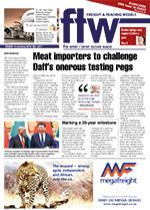MBABANE – Swaziland’s Ministry of Labour believes 10 000 jobs can be retrieved in the short term following the announcement of Swaziland’s reinstatement as a beneficiary of the US trade scheme the African Growth and Opportunity Act (Agoa). This as export-geared companies return and established firms like TexRey expand their local operations with an eye on the US market. Removed from the list of participating countries in 2015, Swaziland is now able to access the significant US market for its products that under Agoa may be imported without duty payments or quotas. “The loss of Agoa affected every sector of the Swazi economy, particularly the manufacturing and transport sectors. Overall, the exclusion from Agoa was demoralising for the country,” Musa Maseko, a business liaison officer with the Swaziland Federation of Employers/Chamber of Commerce, told FTW. Swaziland’s garment industry was created in 2001 when the country gained entry to Agoa. Government maintains diplomatic relations with Taiwan, and Taiwanese textile firms set up shop to take advantage of Agoa and export to the US. Swaziland’s industrial centre, Matsapha, expanded by a third as government built a score of factory shells to accommodate the new garment businesses. Road freight transport firms were kept busy with major new clients, bringing in raw materials and industrial machinery and taking finished product to Durban for export. However, for several years the US warned that Agoa eligibility was in jeopardy and urged government to amend labour and security laws to conform to international standards. Despite several warnings from Washington that the International Labour Organisation (ILO) found these laws anti-labour and in violation of human rights, government did nothing. Agoa participation was withdrawn on December 31, 2014. An estimated 17 000 jobs were subsequently lost. Swaziland’s exports to US amounted to US$77.1m in 2014, and declined to near zero in 2015 through 2017. While all other SADC countries experienced economic growth ranging from modest to fairly robust, Swaziland’s economy remained in the doldrums. Despite some expensive government-funded public works projects, the average Swazi’s standard of living declined. In 2017, parliament amended labour and security laws that the ILO had found objectionable. On December 23, the US embassy released a statement announcing the country’s re-admission into the trade development programme. “The Kingdom of Swaziland has made progress under Agoa criteria, including the rule of law and protection of internationally recognised workers' rights,” according to the statement. “I don’t think government took the US warnings seriously in 2014, and tried to call Washington’s bluff. The fact that government was able to amend the offending laws to the US’s satisfaction showed they could have done it in 2014. Let’s hope a lesson has been learned – if you are going to play in someone else’s game you have to follow their rules,” said the manager of a Matsapha-based freight forwarding company who asked FTW not to use his name because his firm does business with government. Although government and labour unions have often been at odds, the main labour umbrella, the Trade Union Congress of Swaziland (TUCOSWA), expressed delight that Agoa privileges had been restored. TUCOSWA secretary general Mduduzi Gina told FTW: “We are all about jobs, and investor confidence in Swaziland has been strengthened because better labour legislation has been enacted. This is proved through the restoration of Agoa. This is a win-win outcome for government and labour.”

